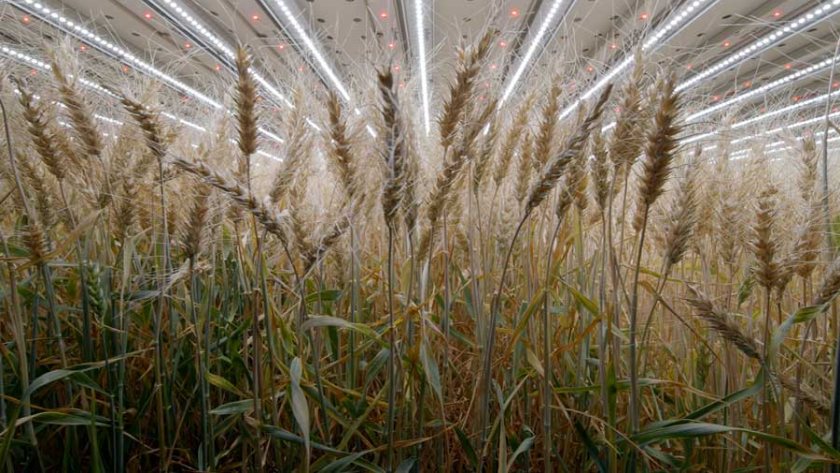
Wheat has been successfully produced in an indoor vertical farm using no soil or pesticides, as well as less water compared to conventional methods.
Trials by vertical farming company Infarm have demonstrated 'exceptional results', allowing a projection of 11.7 Kg per m2 yield per year.
Further projected at scale, this is the equivalent of 117 tonnes per hectare per year - 26 times that of open-field farming yields, the German firm said.
Infarm added that it was an 'important milestone' for growing a staple food given that climate change impacts across the world were worsening.
Wheat provides much of the global population with its daily energy requirements and is a significant source of protein, accounting for almost 40% of daily protein intake in some regions.
Wheat is grown over a larger area than any other crop and due to a destabilised environment, the yield per hectare is expected to decline.
Guy Galonska, co-founder of Infarm, said the crop could be grown successfully at scale indoors as a climate-resilient alternative.
”To continue to feed the world's growing population, we need to achieve higher crop yields which we have now proven to be possible for wheat through indoor, controlled environment agriculture.
"Our results are significant when compared to the average yield of outdoor wheat production, which is about 4.5 tonnes per hectare per year and heavily dependent on weather and seasons."
The record yield could potentially be increased by a further 50% in the coming years using a combination of improved genetics, hardware, and optimised growth environments.
Erez Galonska, another co-founder of Infarm: “Being able to grow wheat indoors is a milestone for Infarm and of significant importance for global food security, as wheat is a calorie-dense but resource-intense crop that is a core component of diets worldwide.
"We started Infarm to find new ways of producing food to feed the world’s growing population and the results show that we are a big step closer to achieving this goal.
"To continue to feed the world's growing population it is necessary that we will need to increase wheat yields which is now possible through indoor, controlled environment agriculture."
